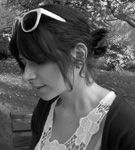 As you read these lines, it's already February, we have all returned back to dear old Bilkent and the spring semester has started. But, as I write these lines, it's still the middle of January. After an incredibly busy (and at times nerve-wracking) semester, I'm supposed to be resting right now, but I just can't hold myself back from enjoying my hometown İstanbul. Days are busy; I try to catch up with both family and friends, yet the ice cold weather and the limited number of days I have don't make it easy at all. This year's holiday is also abundant with high quality works from great directors (such as Woody Allen's Whatever Works, Pedro Almodovar's Broken Embraces and Fatih Akın's Soul Kitchen), as well as those by less known but nevertheless good filmmakers (such as Vavien by Yağmur and Durul Taylan and Let the Right One In by Tomas Alfredson)-all of which I recommend you go see, hoping that you don't miss them between Avatar and Yahşi Batı. Meanwhile, I also try to get ready for the upcoming semester by planning my classes and doing premature research to ease my curiosity a little. Overall, life seems light and right on its track. As you read these lines, it's already February, we have all returned back to dear old Bilkent and the spring semester has started. But, as I write these lines, it's still the middle of January. After an incredibly busy (and at times nerve-wracking) semester, I'm supposed to be resting right now, but I just can't hold myself back from enjoying my hometown İstanbul. Days are busy; I try to catch up with both family and friends, yet the ice cold weather and the limited number of days I have don't make it easy at all. This year's holiday is also abundant with high quality works from great directors (such as Woody Allen's Whatever Works, Pedro Almodovar's Broken Embraces and Fatih Akın's Soul Kitchen), as well as those by less known but nevertheless good filmmakers (such as Vavien by Yağmur and Durul Taylan and Let the Right One In by Tomas Alfredson)-all of which I recommend you go see, hoping that you don't miss them between Avatar and Yahşi Batı. Meanwhile, I also try to get ready for the upcoming semester by planning my classes and doing premature research to ease my curiosity a little. Overall, life seems light and right on its track.
But is it, really? This January, I would say, is a tiresome month. Checking the newspapers would be enough to see why. The world is focused on the misfortune of Haiti after the massive earthquake and as days pass, the suffering that the Haitians are go through is understood even better. Things are obviously not so good in Turkey either. Yesterday, under heavy snow and a dark sky, the assassination of Hrant Dink was commemorated on its third year. The day before, the assasinator of another honorable journalist was released from prison and welcomed by festive supporters. Meanwhile, the Tekel workers started their hunger strike outdoors, in the towncenter of Ankara. There are striking pieces of recent news about ethnic discrimination towards minorities from different cities. The worst thing about all this news is that there is actually nothing new. The contents change, but the forms stay the same.
Noticing and thinking about such things drags me into deep meditation and despair. When it comes to politics, I would call myself a pessimist more than anything else. I observe and follow, I share the pain, but I don't act as strongly as some people do because of two main reasons: First, I can't get myself to believe that civil actions reach anywhere. Yes, with the sole efforts of individuals, many things were achieved in political and social arenas in history, but the period that we are in is based on individualism to a great extent and the thought that the good and strong wills of small civil groups or even masses would simply go unnoticed by greater actors depresses and angers me.
Second, I sometimes don't know where, how and even why to start. There is so much to do in this world, but also in my own life too, and even starting to imagine to balance these two or thinking that my motivations in these two fields can clash puts pressure on me. I am simultaneously afraid of being selfish to others and using others to abandon my own goals. I even question myself sometimes and ask whether I am an apolitical person deep down, because I simply don't engage in any activism, or at least the activism that is defined on Facebook or on the streets.
When I somehow write about these thoughts on my blog and talk to my friends, people tell me that this isn't being apolitical but the opposite: it is where one starts to be political. There is no final answer to these inner struggles, yet my space is limited. So, at this point, the only piece of advice that would come from me, a confused individual, to you, fellow Bilkenters, would be urging you to notice what is happening and what position you would take.
By Damla Okay (COMD/V)
dokay@bilkent.edu.tr
 |







